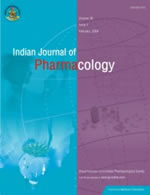
|
Indian Journal of Pharmacology
Medknow Publications on behalf of Indian Pharmacological Society
ISSN: 0253-7613 EISSN: 1998-3751
Vol. 37, Num. 4, 2005, pp. 268-269
|
Indian Journal of Pharmacology, Vol. 37, No. 4, July-August, 2005, pp. 268-269
Web-Wise
Drugs for neglected diseases initiative
Singh J.
IJP, Pondicherry
Correspondence Address: IJP, Pondicherry, jatindersingh@vsnl.com
Code Number: ph05072
www.dndi.org [Figure - 1]
Drug development has a direct relationship to wealth, both in terms of money and resources. Pharmaceutical companies are known to develop and market new drugs designed for commoner diseases and targeted at populations that can afford them. In the poorer, developing countries the benefits of newer discoveries are either delayed or deliberately denied because of the issues of affordability and access. As a result of this, millions of people continue to suffer from deadly infectious diseases for which drugs developed more than half a century ago are still being used, primarily because drug developers do not visualize any profit from these maladies. It seems unrealistic, because on one hand the causes and cures for neglected diseases have been unearthed by the application of cutting edge, modern day science and on the other hand, drug development; which stems from similar research; has not been allowed to keep pace with these findings. International organisations and the governments of wealthier nations wield a considerable influence over research in the way of funding and applicability of the results. These influential bodies are also responsible for prioritising research activities and plugging the yawning gap between research and drug development in the field of orphan diseases.
Diseases that are global in nature, namely tuberculosis and malaria appeal to the health interests of wealthier nations and have therefore found good advocates in certain public-private initiatives like the Medicines for Malaria Venture and the Global Alliance for TB Drug Development. Diseases that are rare and occur in the poorest and marginalised sections of society have however found no sponsors. A distinct and innovative solution that was sorely needed came in the form of unique initiative-Drugs for Neglected Diseases Initiative (DNDI). This project, motivated more by need rather than profit, was mooted by Dr. Bernard Pιcoul of the Nobel Prize winning organisation- Mιdecins sans Frontiθres (MSF).
The website of the organisation (www.dndi.org) is a major access point for this international virtual organisation. It goes on to tell us more about the beginnings of the venture with the Oswaldo Cruz Foundation from Brazil, the Indian Council for Medical Research, the Kenya Medical Research Institute, the Ministry of Health of Malaysia and France′s Pasteur Institute and Mιdecins sans Frontiθres (MSF), the UNDP/World Bank/WHO′s Special Programme for Research and Training in Tropical Diseases (TDR) coming together for this common cause. The three diseases that are the focus of intervention are visceral leishmaniasis, human African trypanosomiasis, & Chagas disease; these exist in the poorest of people and have a critical impact on the health and economy of the countries where they are rampant. The projects that have been undertaken by DNDI for curbing these diseases including those for malaria are highlighted in another section. It goes on to inform us that research activities for leishmaniasis and sleeping sickness are more at the pre-clinical stages, whereas for malaria, the emergence of chloroquine resistance has given the way for combination regimens and artemisinin based therapy which is undergoing clinical trials in various countries.
The questions and answers link is the most informative and seeks to address the commoner queries that concern a visitor or a researcher new to the concept of neglected diseases. It begins by tracing the history of the organisation and ends by summarising its short and long term activities and objectives. In between, it highlights various gaps encountered between pre-clinical and clinical drug research, the solutions to these problems and possible outcomes. There are a number of publications relating to DNDI and its work which are relevant to understanding the concept of neglected diseases and the hurdles encountered in treating them. Some of the publications are thought provoking and reveal the factors that motivate market forces and drug research and the reasons why developed countries are not interested in helping access to orphan drugs. An open letter to Prime Minister Tony Blair contained in the media section provided an insight into what DNDI really seeks in terms of responsible partnerships.
The website of this highly acclaimed initiative for neglected diseases is an eye opener for researchers, scholars and media people who are interested in neglected diseases and in understanding the unique interplay of poverty, research and market forces that govern access to drugs.
Copyright 2005 - Indian Journal of Pharmacology
The following images related to this document are available:
Photo images
[ph05072f1.jpg]
|
